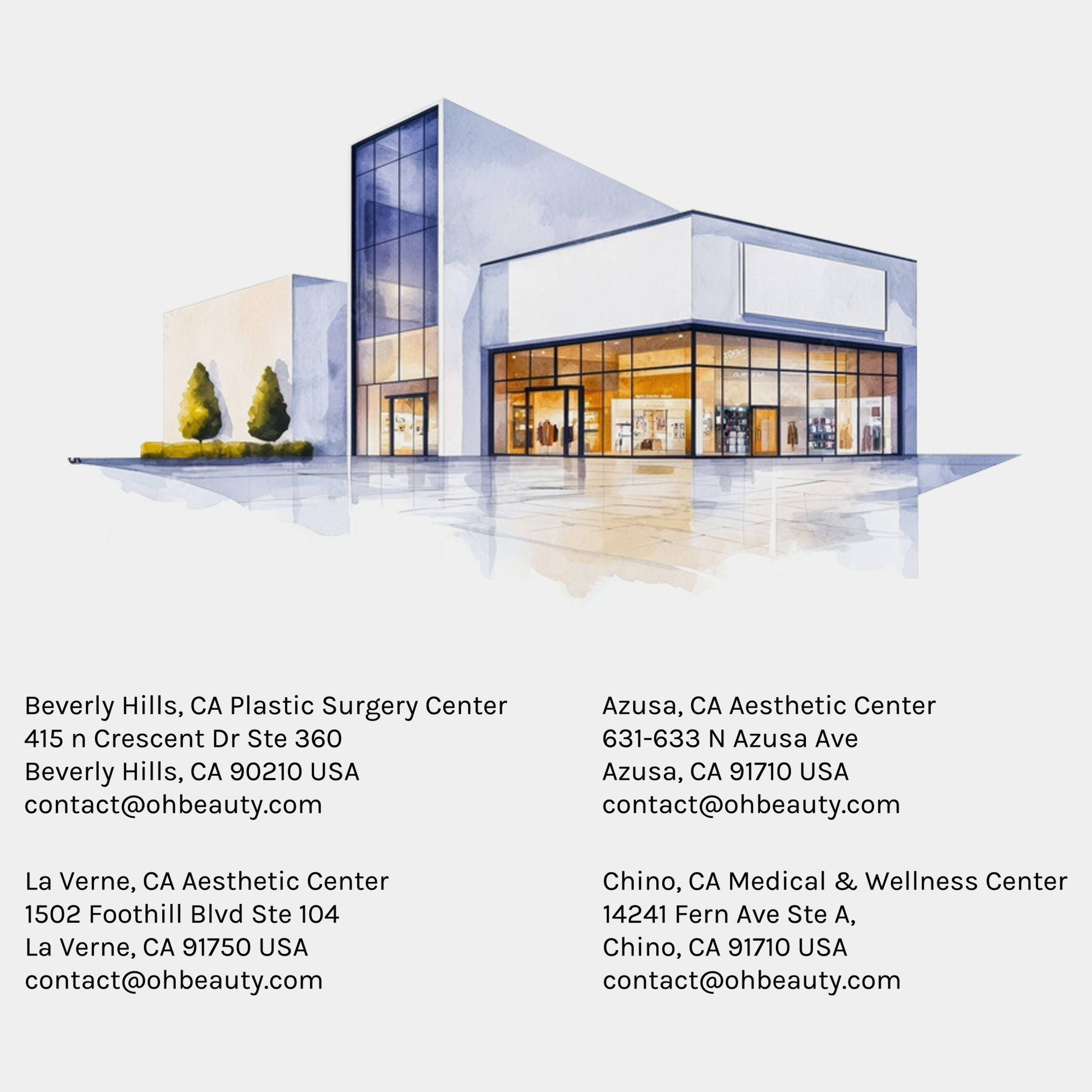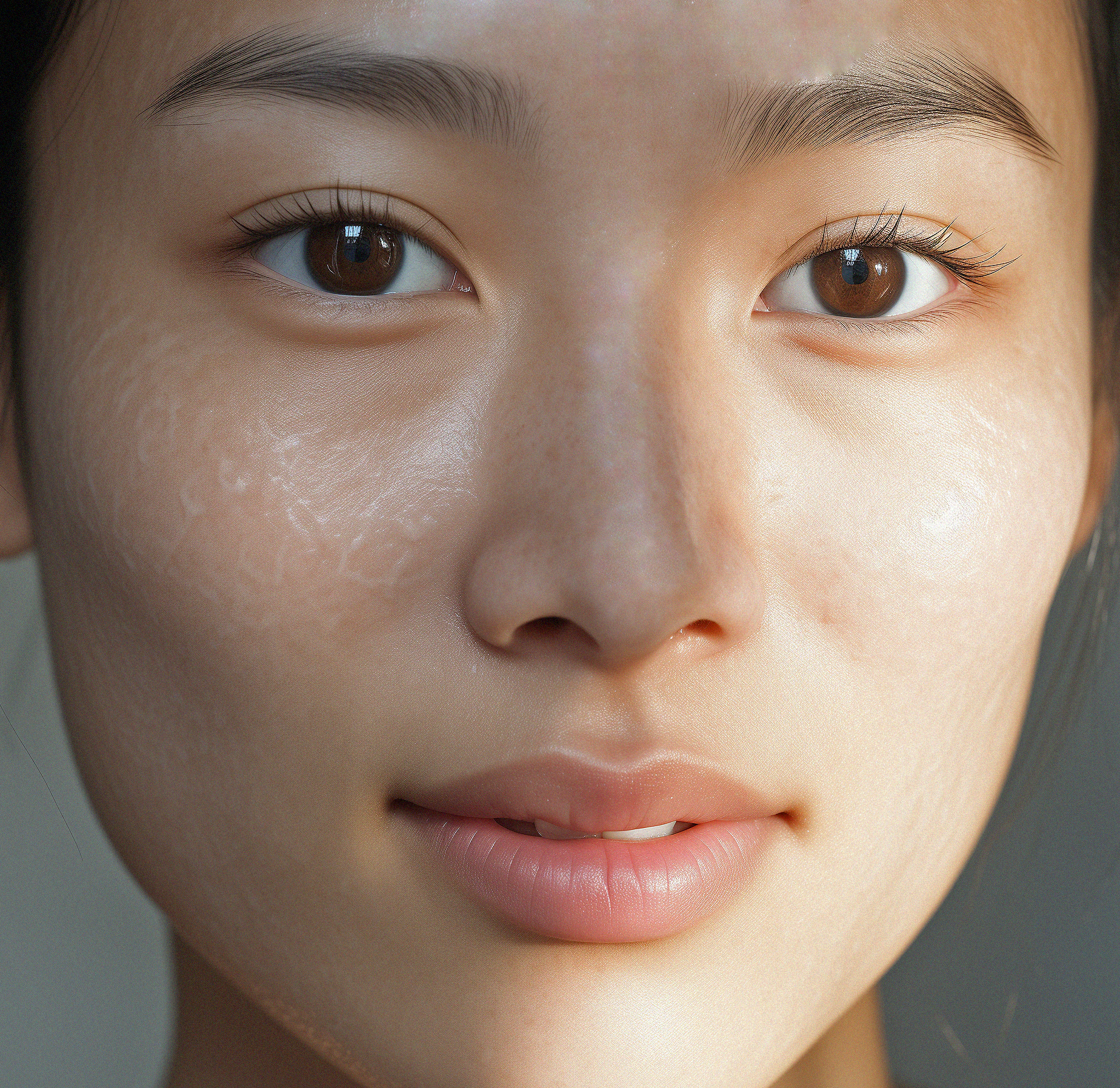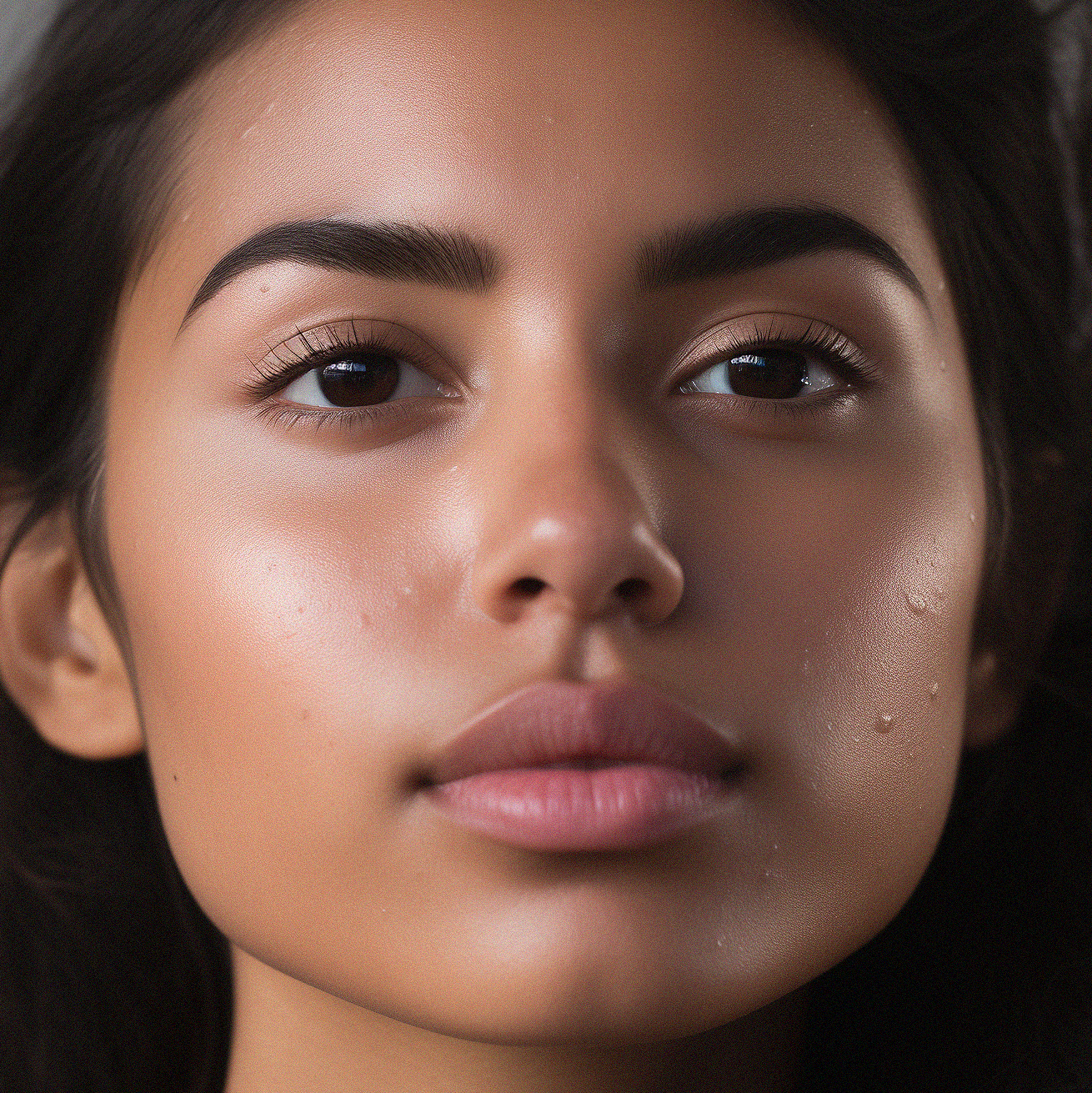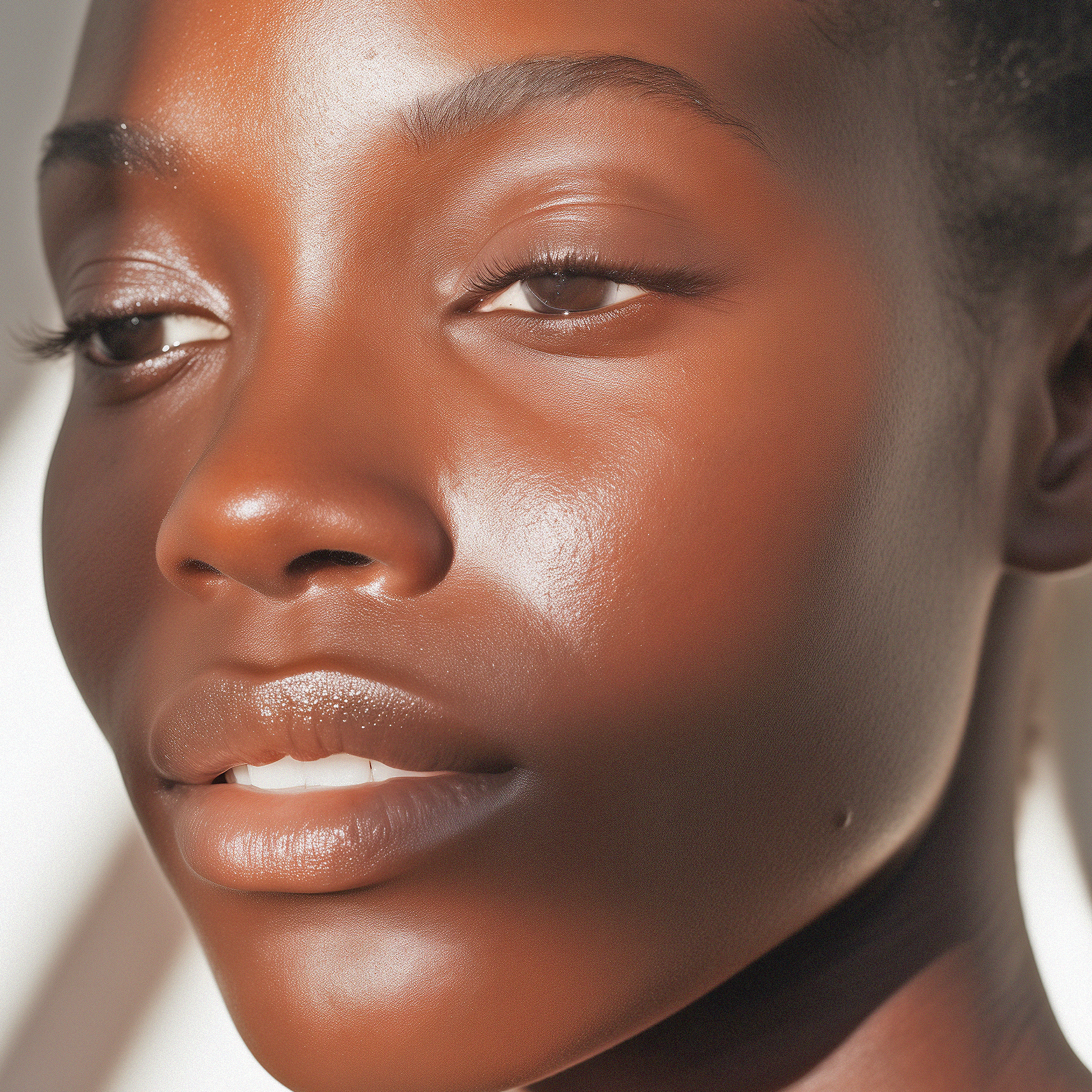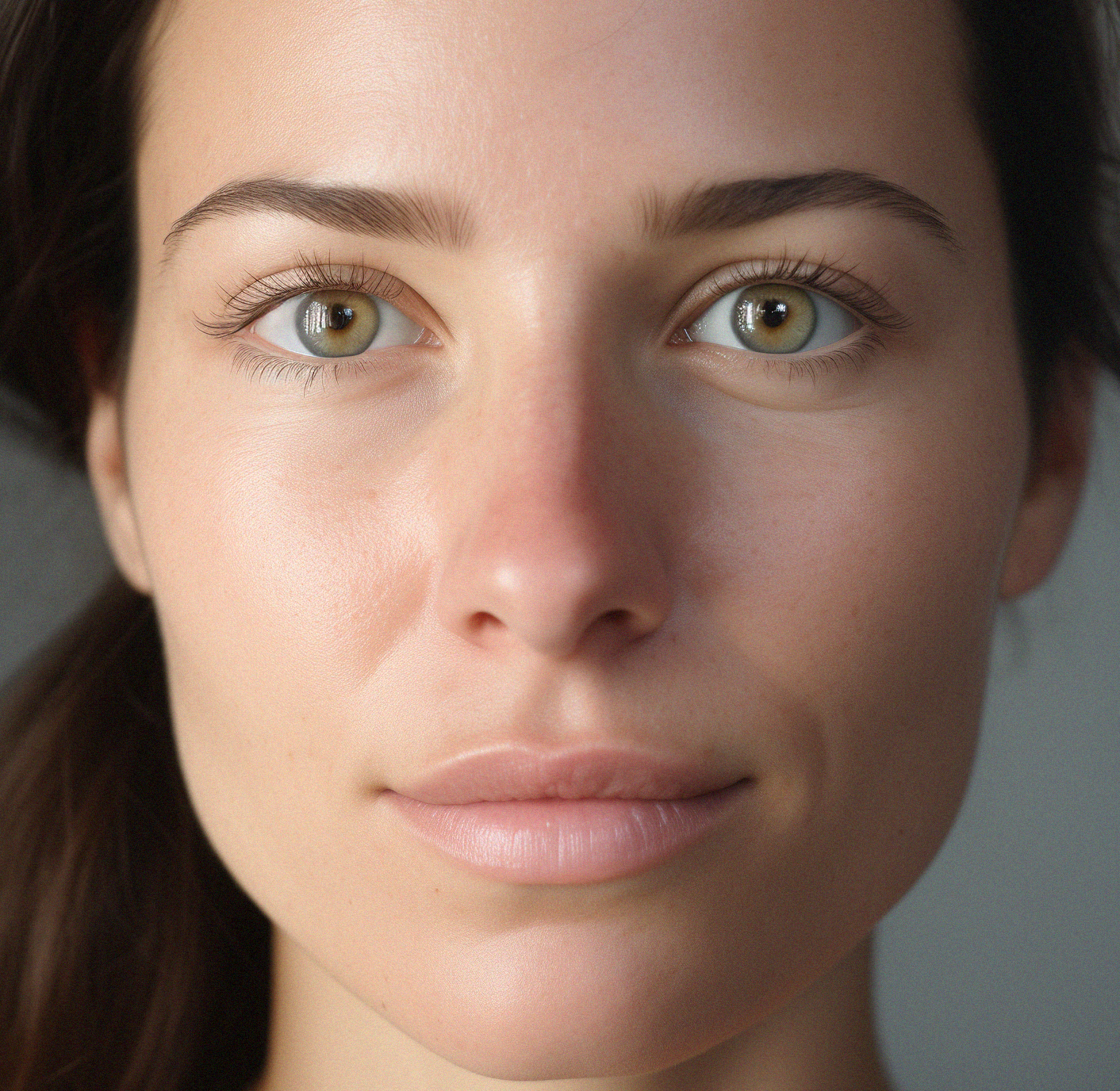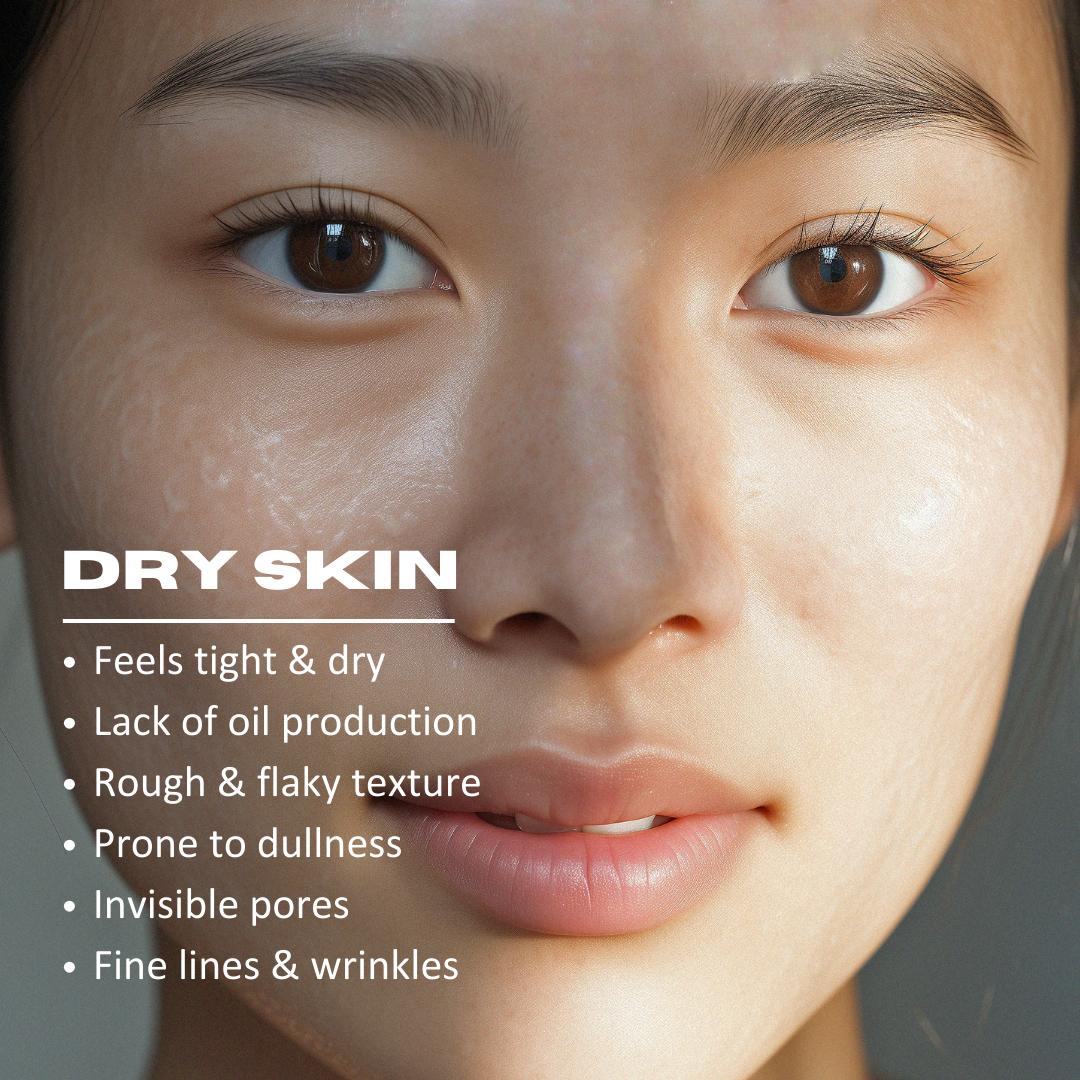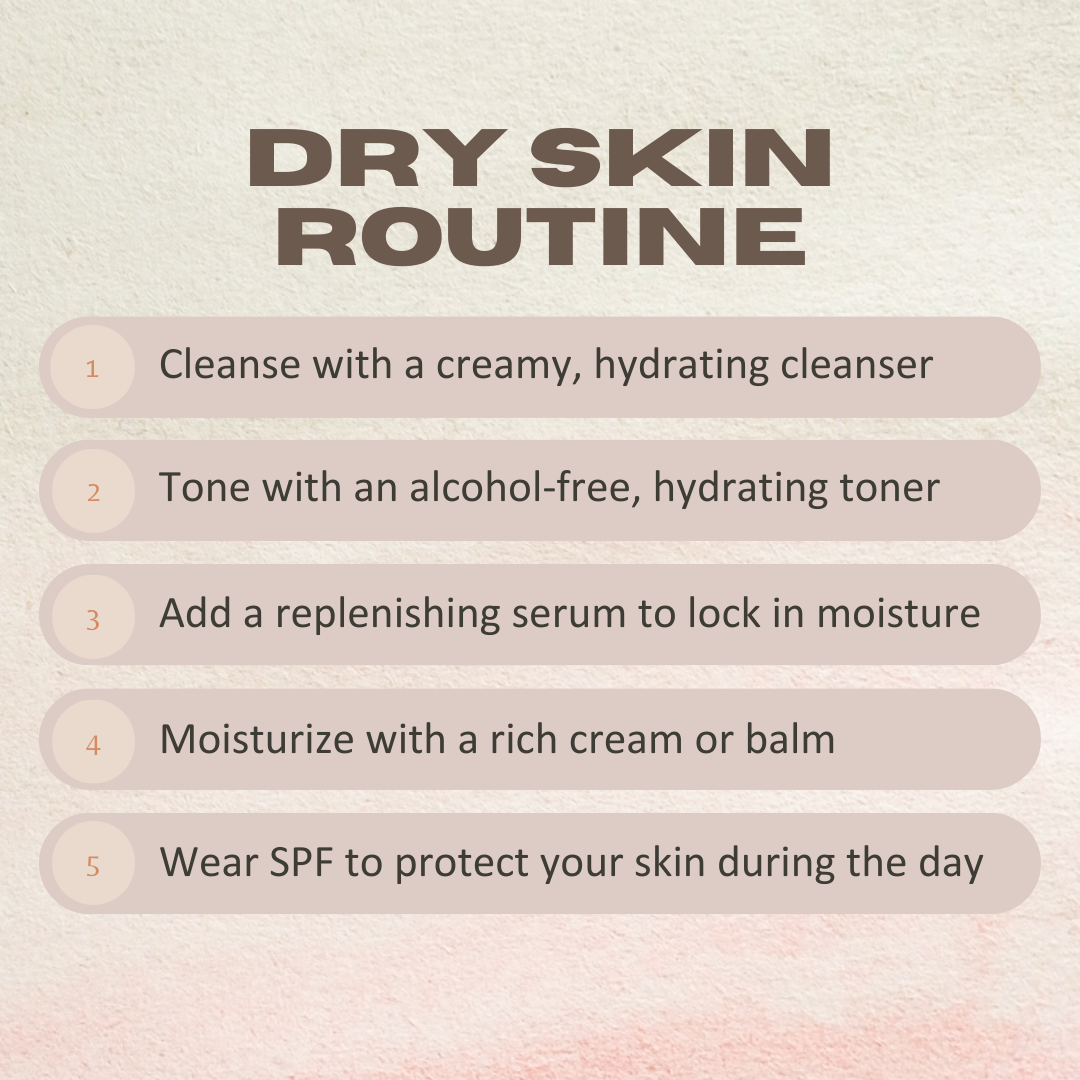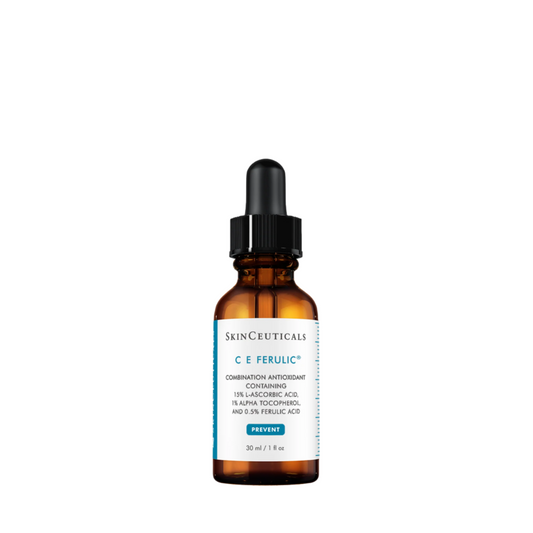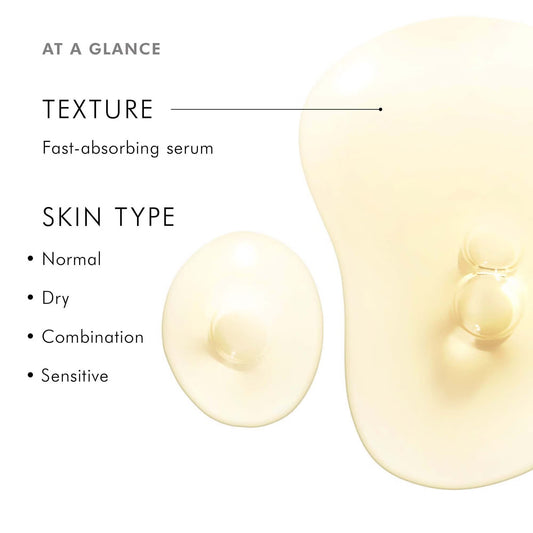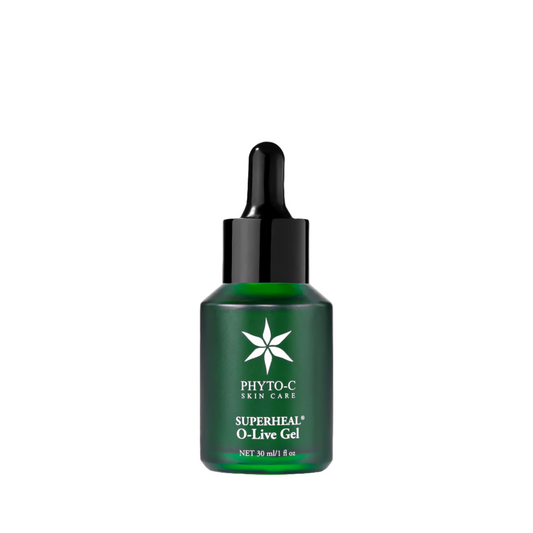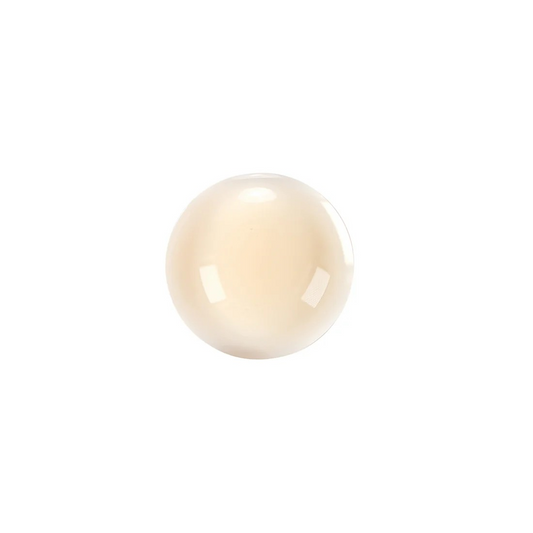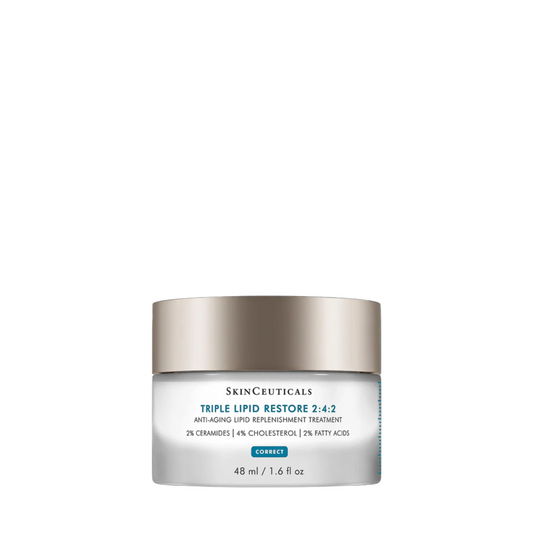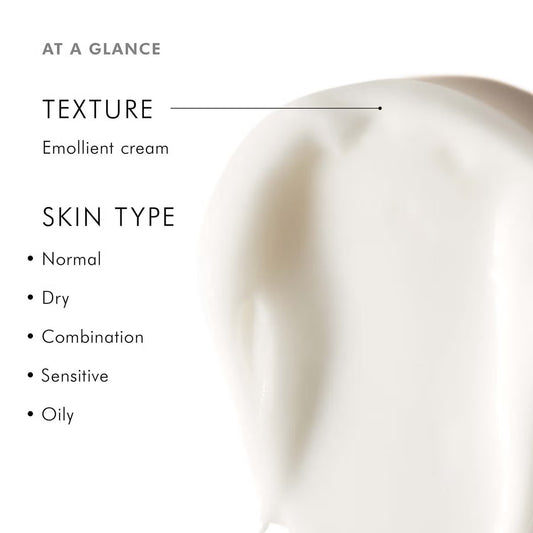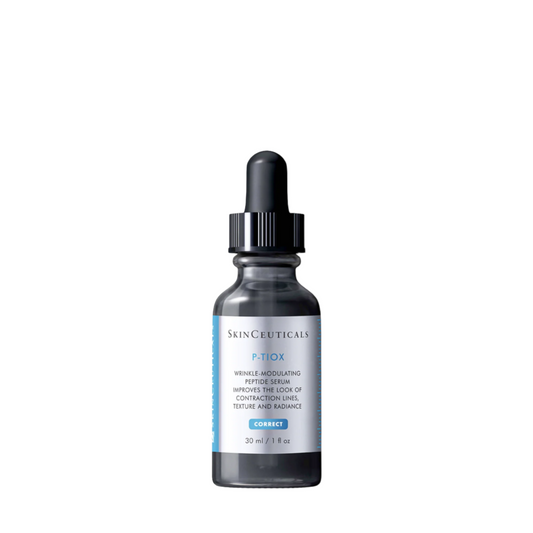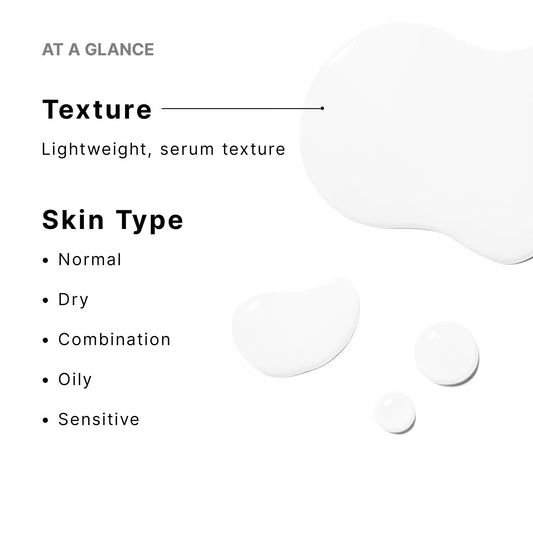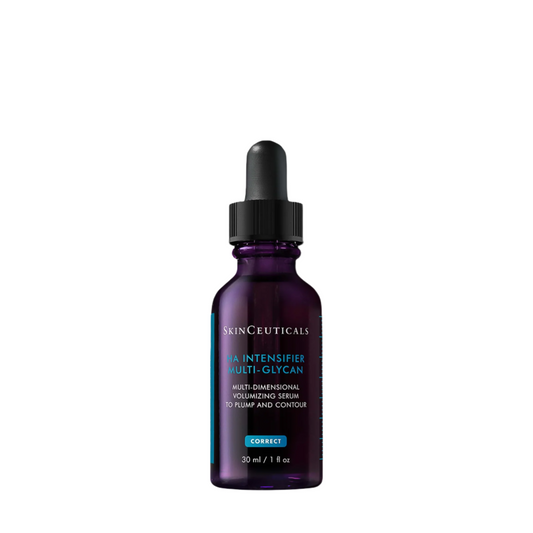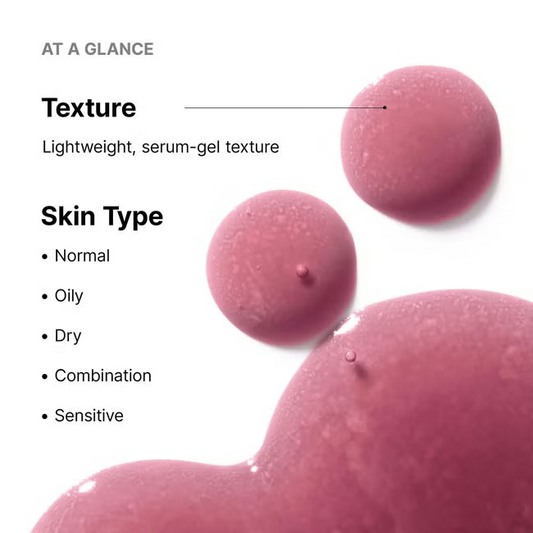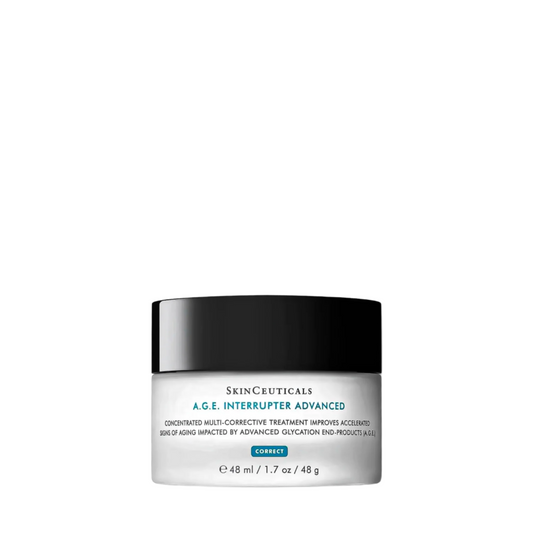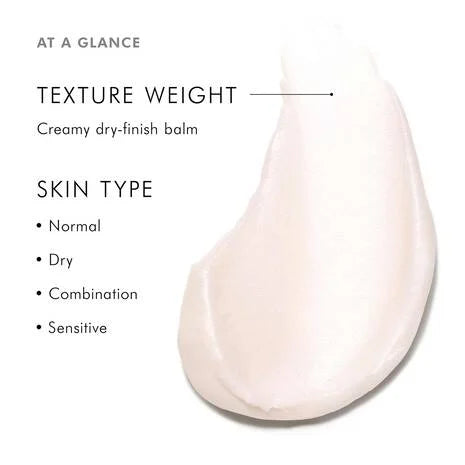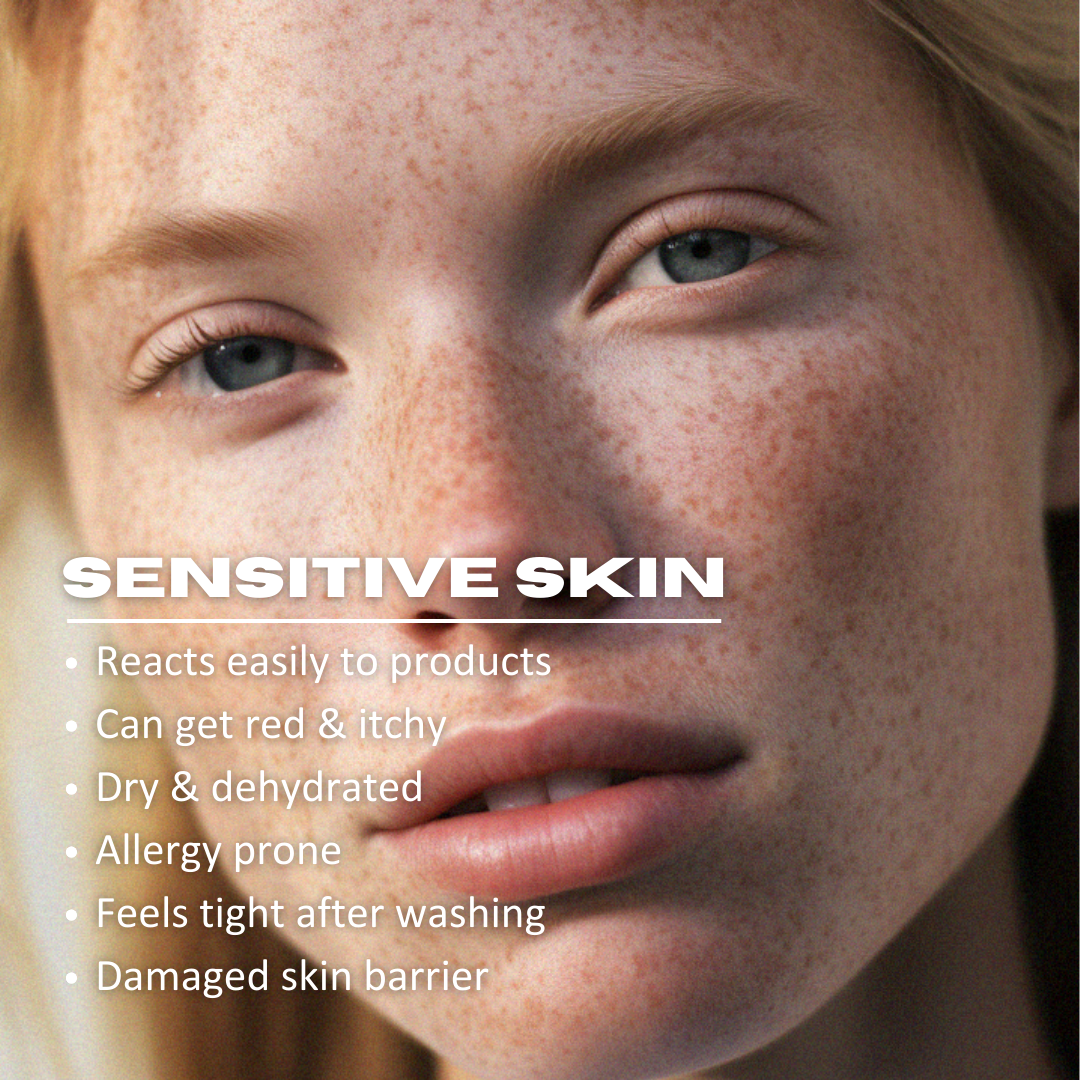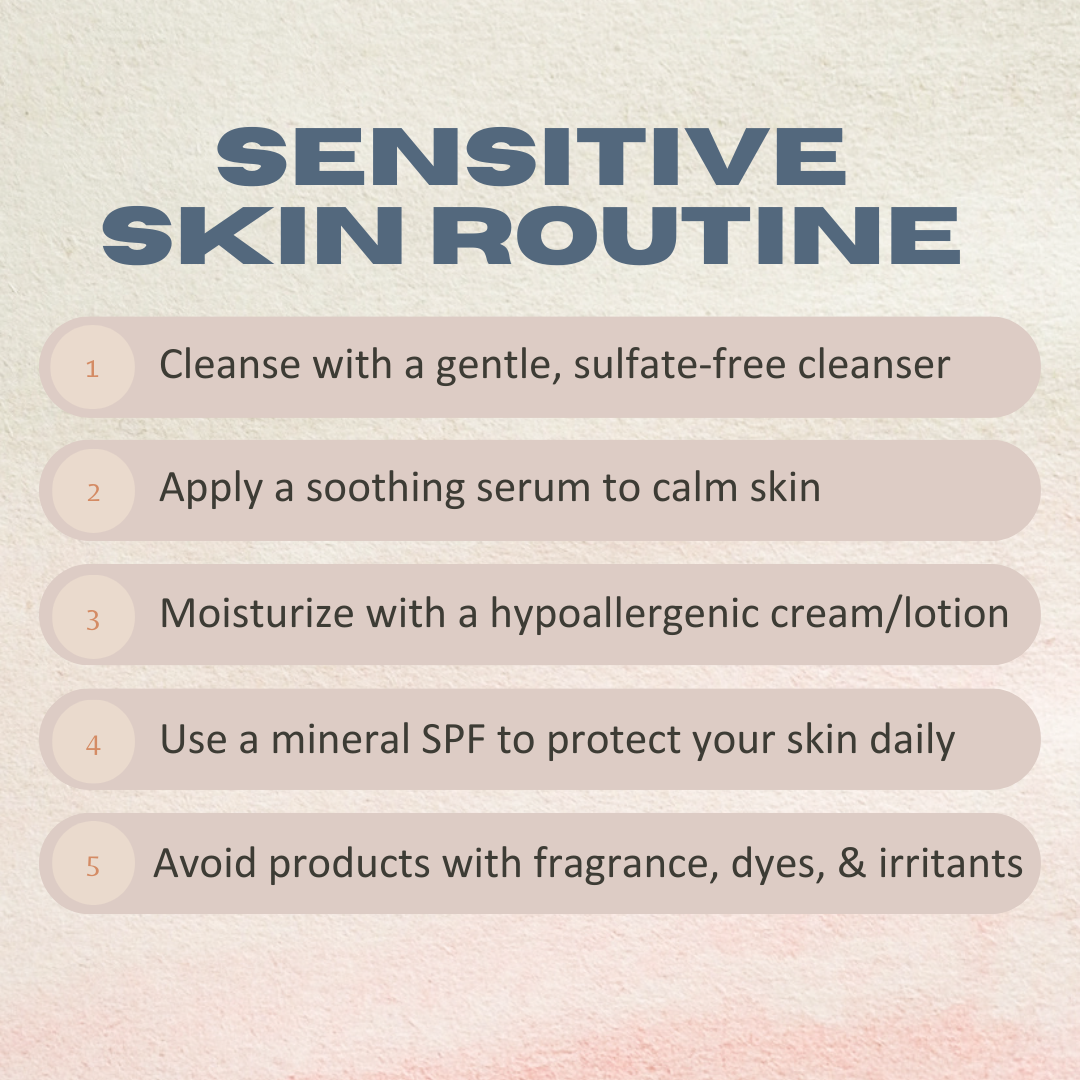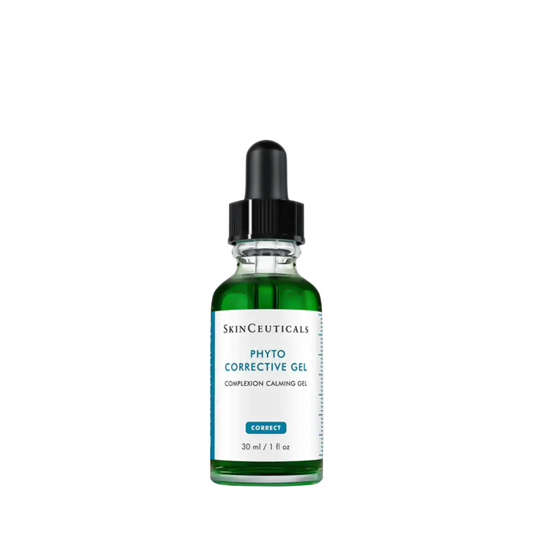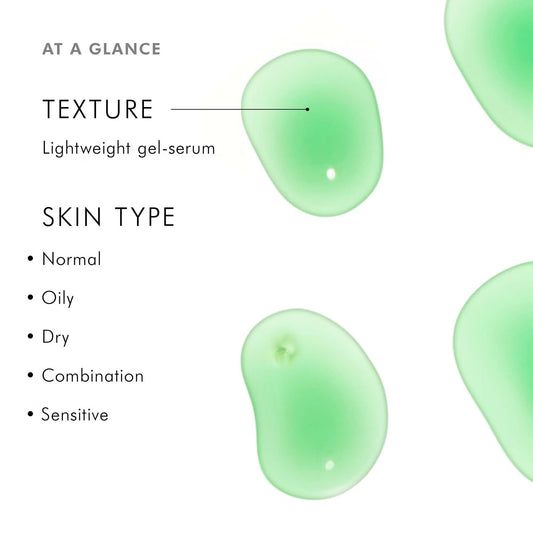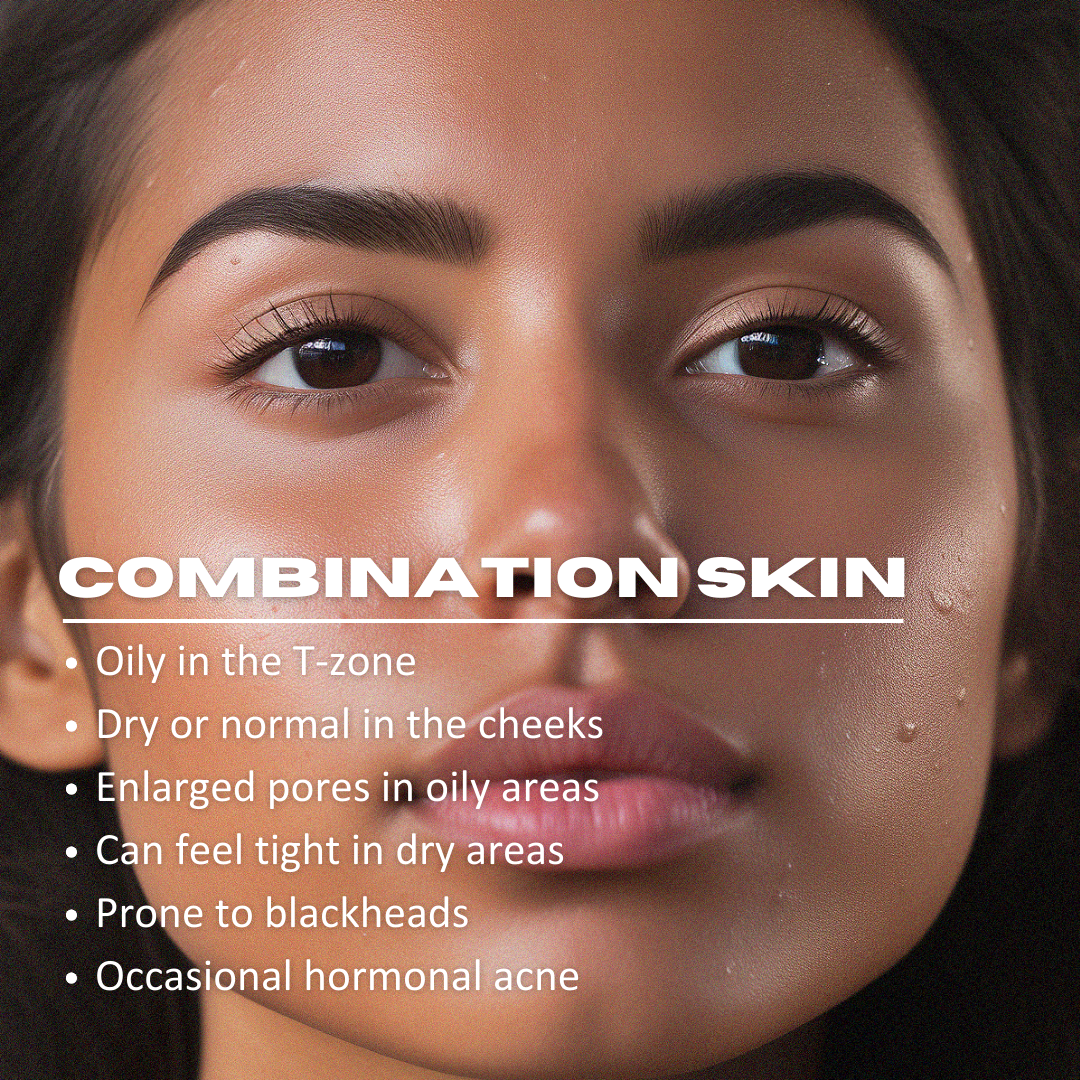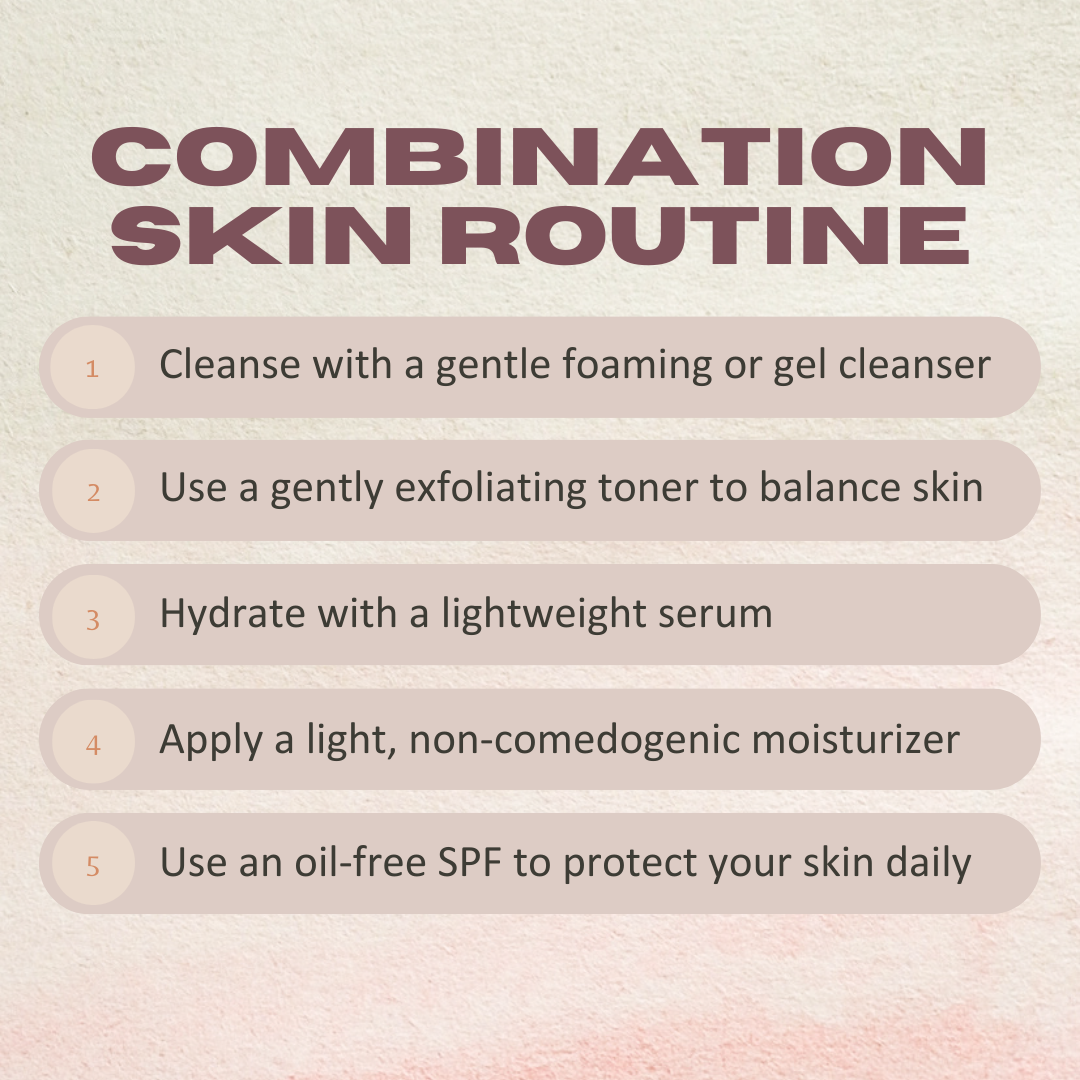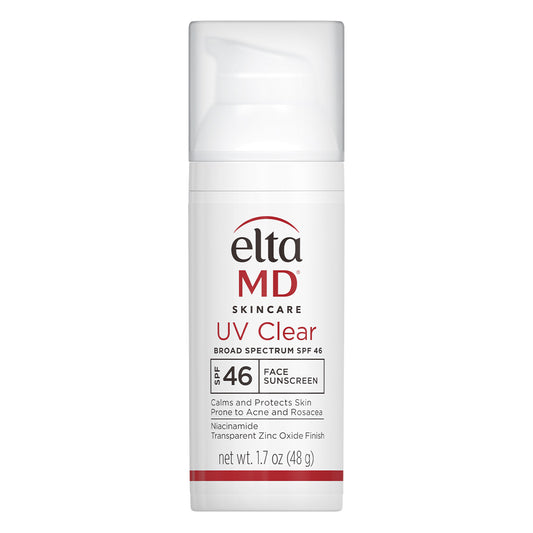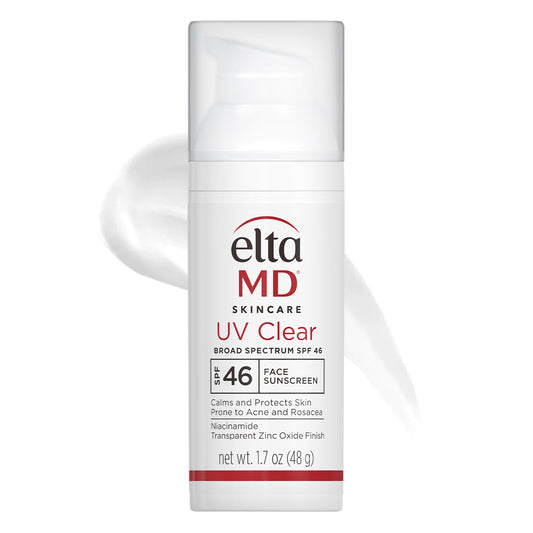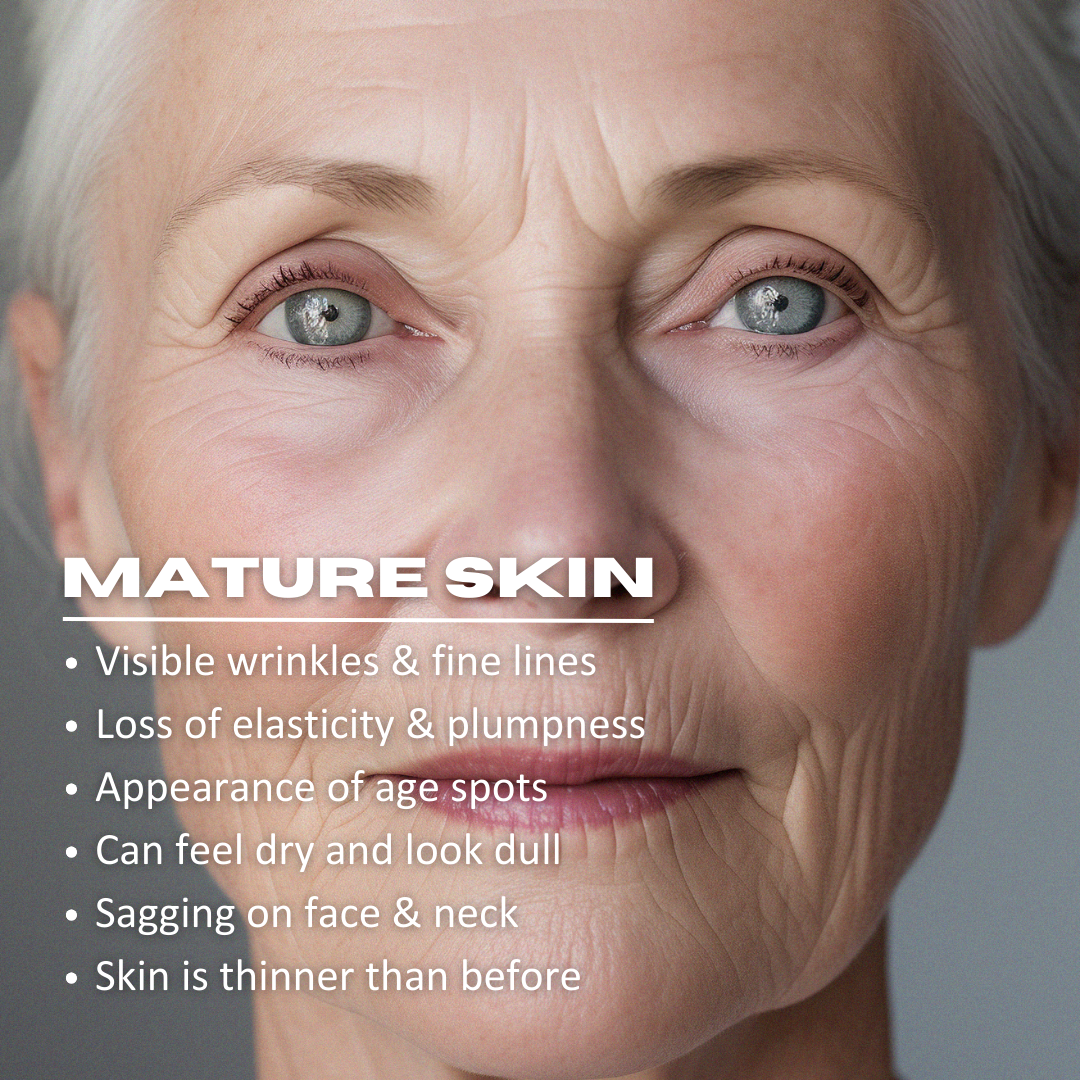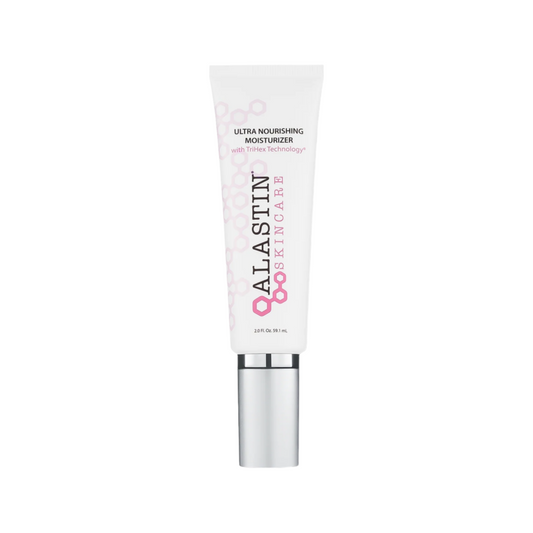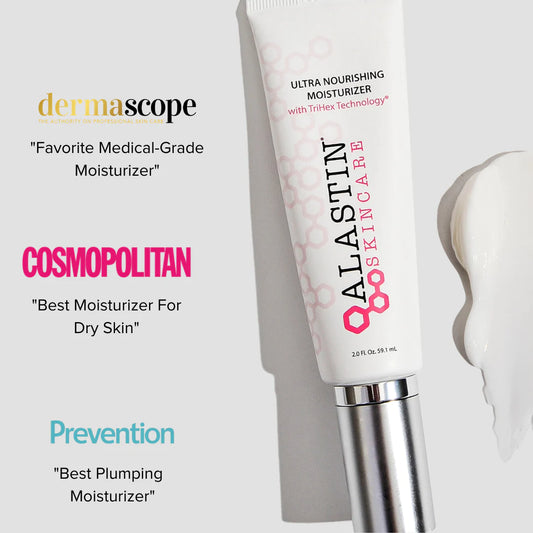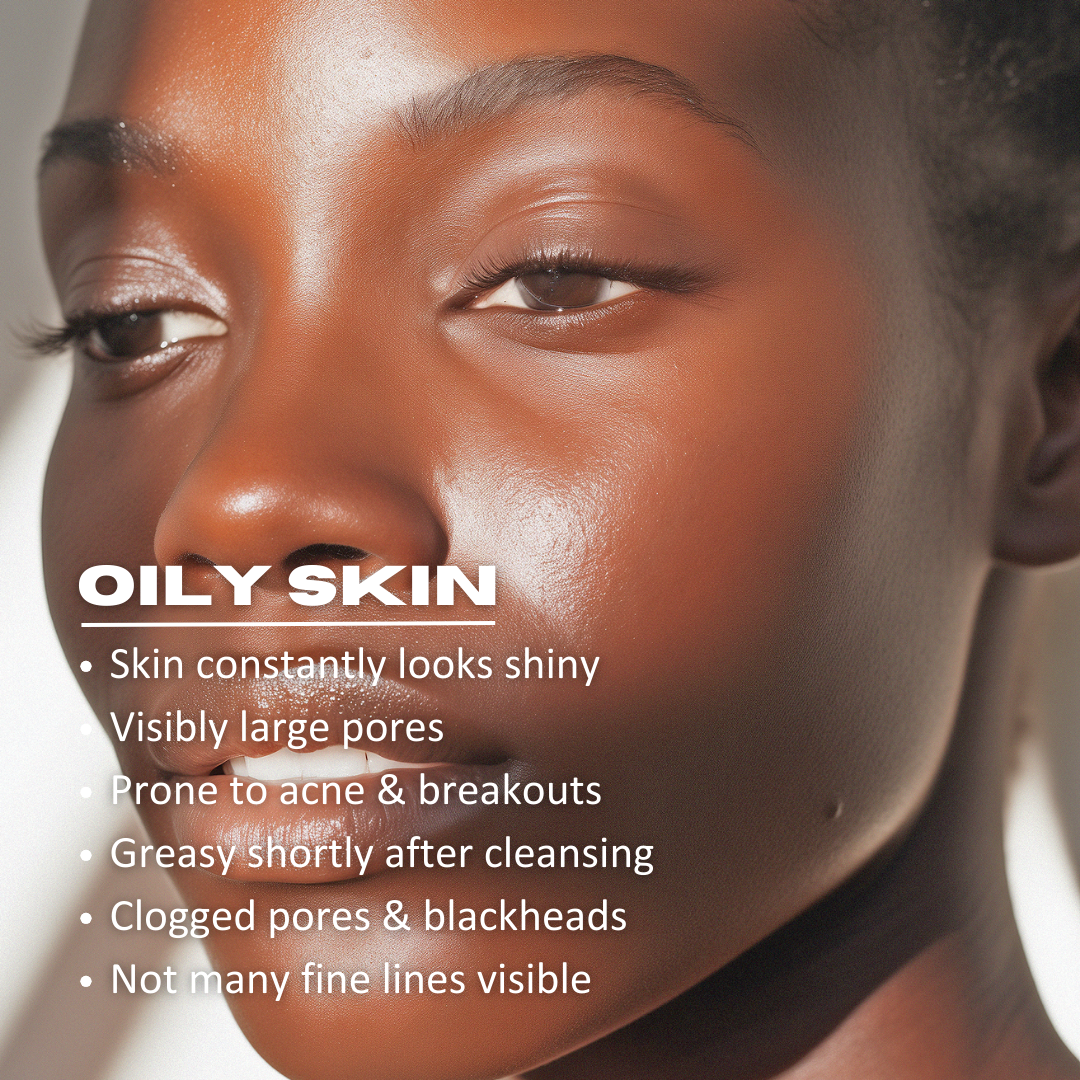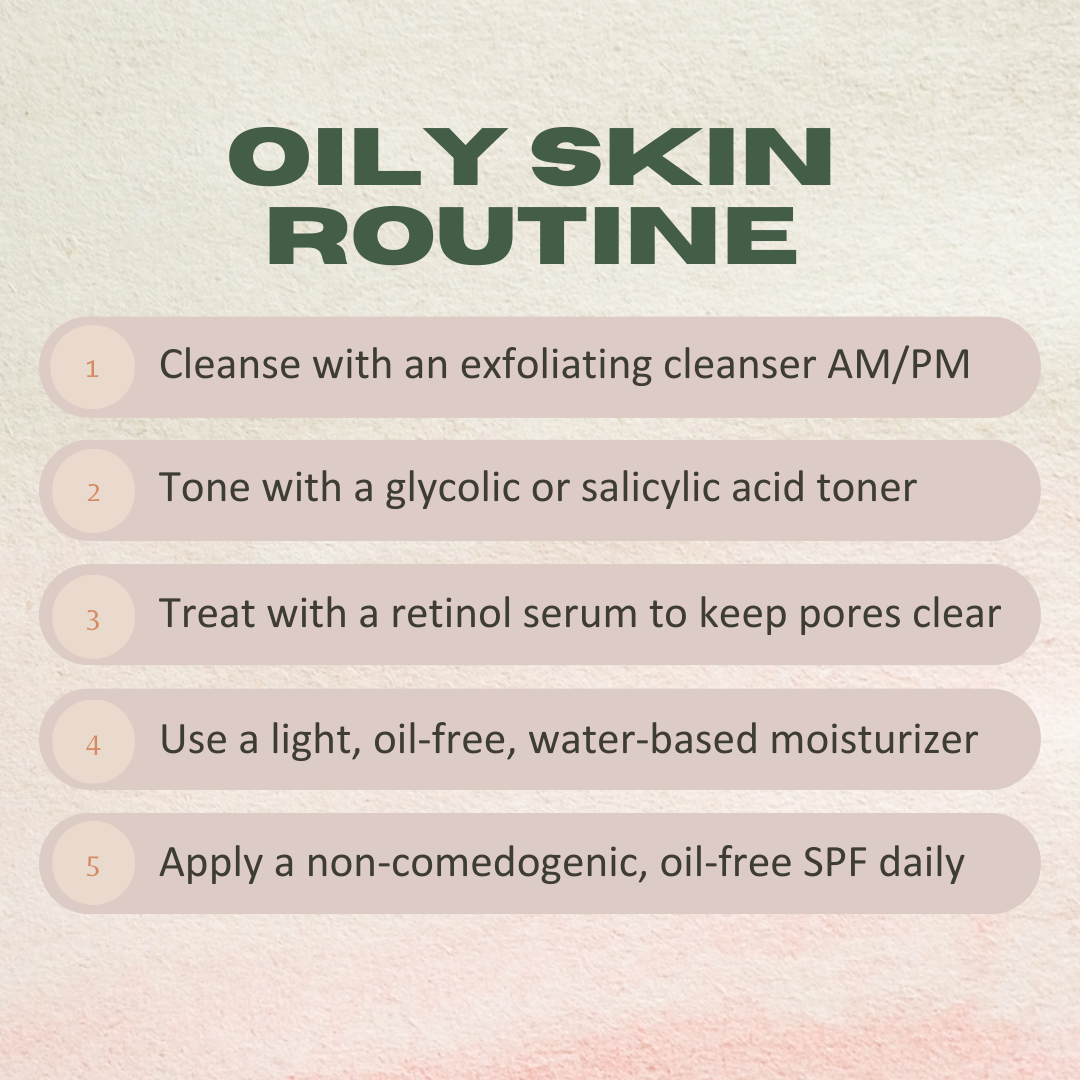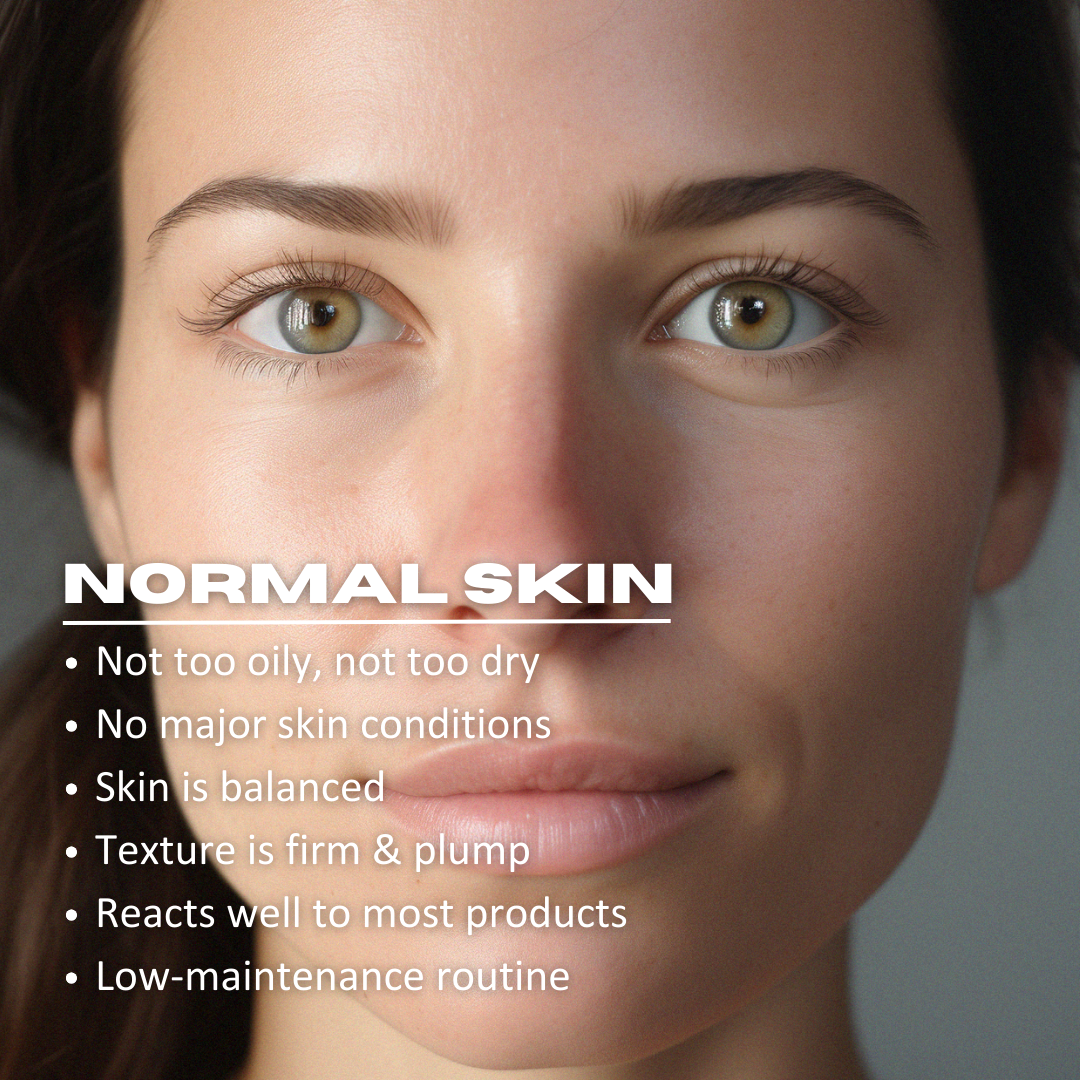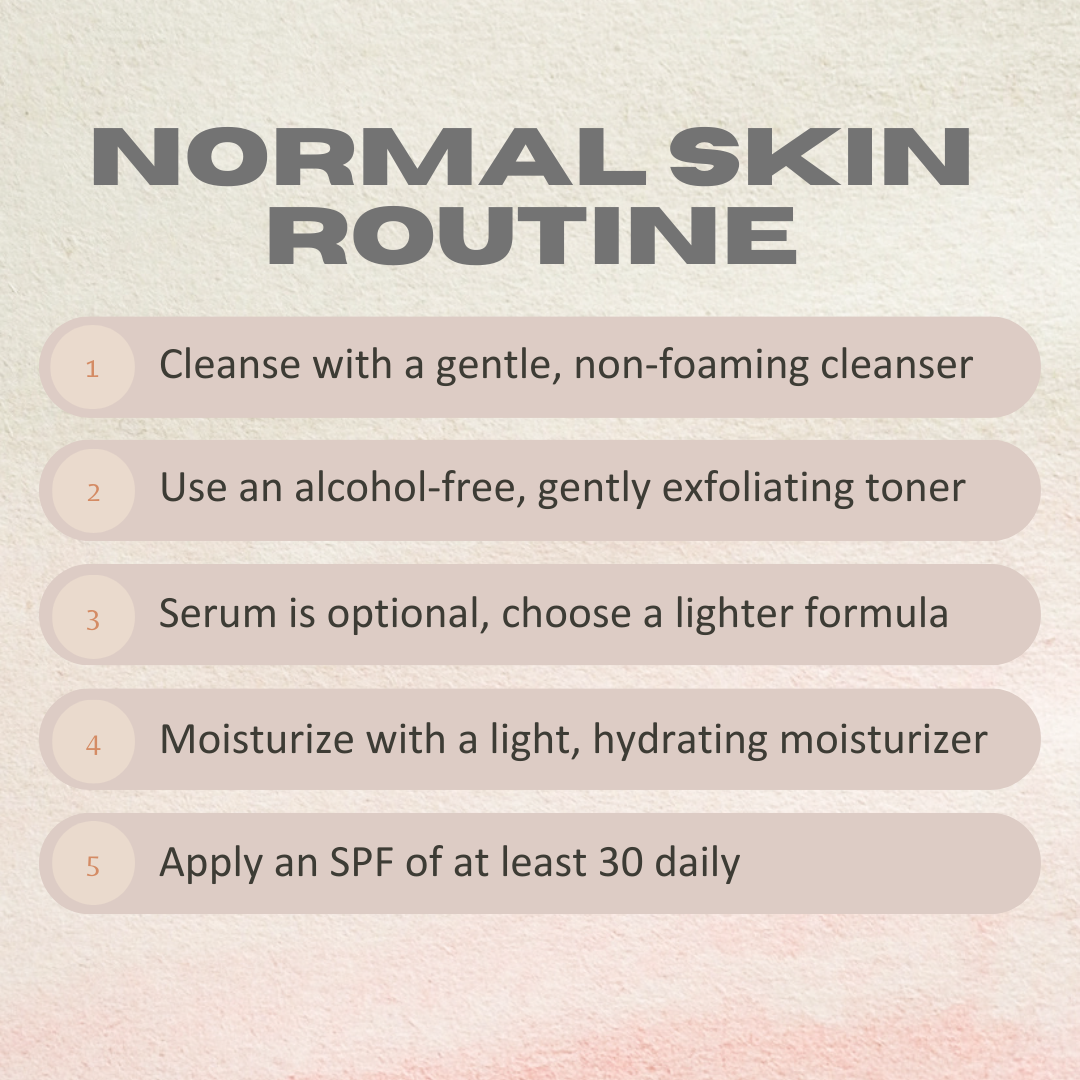Benefits Of A Personalized Skincare Routine
Crafting a personalized skincare routine not only saves time and money, but also delivers visible results! Using the right products and steps for your skin type fosters skin healing, restores balance, and combats signs of aging effectively.
Identify Your Skin Type And Concerns
Whether you're a seasoned skincare enthusiast or just starting your skincare journey, this guide will help you identify your skin type and create a highly effective regimen that works for you!
Who We Are
We've been in the medical spa industry for over a decade and draw on years of expertise from dermatologists and estheticians.
The 6 Different Skin Types
Why It's Important To Know Your Skin Type
Knowing your skin type is the first rule of skincare. It's the key to creating a routine that actually works for you. It unlocks the secret to a less cluttered and more effective skincare routine.
Every person's skin is unique, and there's no universal approach to skincare. Crafting your personalized routine might seem time consuming, but the results are absolutely rewarding! Tailoring your skincare to your individual needs is a key factor in ensuring your skin's overall well-being.
Skincare Routine For Dry Skin
Cleanse (Morning/Night)
Gently cleanse your face with a hydrating, creamy cleanser. Avoid harsh chemicals and opt for a formula that replenishes moisture while removing impurities.
Tone (Morning/Night)
Apply an alcohol-free, hydrating toner to rebalance your skin's pH levels. Look for ingredients like marine extracts, hyaluronic acid or glycerin to boost hydration.
Serum (Morning/Night)
Use a hydrating serum that contains moisture-replenishing ingredients like hyaluronic acid, and antioxidants like Vitamin E, Vitamin C, and A.
Moisturize (Morning/Night)
Apply a thick, emollient moisturizer to lock in moisture and hydration. Look for ingredients such as hyaluronic acid, ceramides, and lipids to restore moisture and repair the skin barrier.
Eye Cream (Morning/Night)
For the delicate eye area, use a hydrating eye cream to address dryness and fine lines. Look for ingredients like peptides to help boost collagen production, and shea butter and Vitamin E for hydration.
Sunscreen (Morning)
Finish your routine with a broad-spectrum sunscreen with at least SPF 30. Protecting your skin from harmful UV rays is crucial to maintaining moisture.
Best Products For Dry Skin
Skincare Routine For Sensitive Skin
Cleanse (Morning/Night)
Use a gentle, unscented, sulfate-free cleanser specifically formulated for sensitive skin. Cleanse both morning and evening to remove impurities without causing irritation.
Serum (Morning/Night)
Apply a soothing and hydrating serum designed for sensitive skin. Look for ingredients like niacinamide (Vitamin B3) or aloe vera to calm and nourish your skin.
Moisturize (Morning/Night)
Use a hypoallergenic and fragrance-free moisturizer suitable for sensitive skin, that strengthens the skin barrier. Choose a formula with gentle ingredients that addresses specific sensitive skin concerns, such as redness.
Eye Cream (Morning/Night)
Choose an alcohol-and-fragrance-free eye cream with a soothing, hypoallergenic formula and ingredients like chamomile and Vitamin E.
Sunscreen (Morning)
Apply a broad-spectrum sunscreen with a high SPF, specifically formulated for sensitive skin. Opt for a physical sunscreen with zinc oxide or titanium dioxide to minimize the risk of irritation.
Products To Avoid
Avoid skincare products that contain harsh chemicals, fragrances, or potential allergens. Always patch-test new products and introduce them gradually into your routine to ensure they don't cause adverse reactions.
Best Products For Sensitive Skin
Skincare Routine For Combination Skin
Cleanse (Morning/Night)
Use a gentle foaming or gel cleanser to remove impurities without over-drying. Look for a cleanser that suits both oily and dry areas of your face. Cleanse both morning and evening.
Tone (Morning/Night)
Apply a mild, alcohol-free toner to balance your skin's pH. Look for a toner that provides gentle exfoliation but also has some hydrating properties.
Serum (Morning/Night)
Choose a light, oil-free serum with ingredients like hyaluronic acid. This can provide moisture without clogging pores and addresses the needs of both dry and oily areas.
Moisturize (Morning/Night)
Apply a light, non-comedogenic (non-pore-clogging) moisturizer that hydrates without being too greasy. Look for a water-based lotion or gel cream containing hyaluronic acid, glycerin, and aloe vera.
Eye Cream (Night)
Choose a lightweight eye cream, gel, or serum that addresses your eye area concerns. A lighter, fast-absorbing formula is ideal for combination skin.
Sunscreen (Morning)
Apply a broad-spectrum, oil-free sunscreen with at least SPF 30 every morning. Opt for a sunscreen suitable for combination skin, ensuring it won't exacerbate oiliness in the T-zone.
Best Products For Combination Skin
Skincare Routine For Mature Skin
Cleanse (Morning/Night)
Start your routine with a gentle, hydrating cleanser to remove impurities without stripping your skin barrier. Avoid harsh, drying cleansers that contain sulfates.
Tone (Morning/Night)
Apply a soothing toner with antioxidant benefits to balance your skin's pH levels and add a layer of moisture for softer, firmer, and plumper skin.
Serum (Morning/Night)
Layer on a concentrated anti-aging serum during the day. During the night, use a retinol to target fine lines, wrinkles, and promote skin renewal.
Moisturize (Morning/Night)
Hydrate your skin with a rich, barrier-boosting moisturizer, preferably with lipids, ceramides, antioxidants and niacinamide to boost moisture, collagen production, and strengthen skin from within.
Eye Cream (Morning/Night)
Pay extra attention to the delicate eye showing signs of aging. Look for a plumping and firming eye cream with ingredients like peptides and ceramides for added nourishment.
Sunscreen (Morning)
Finish with a quality broad-spectrum sunscreen to protect against UV rays and prevent further signs of aging. Choose an SPF formulated with replenishing ingredients like antioxidants and hyaluronic acid.
Best Products For Mature Skin
Skincare Routine For Oily Skin
Cleanse (Morning/Night)
Start your routine with a gently exfoliating foaming or gel cleanser to control excess oil. Cleanse your face twice a day, in the morning and evening.
Tone (Morning/Night)
Use an alcohol-free toner with ingredients like glycolic or salicylic acid to further remove impurities and balance the skin's pH. This helps control oil production.
Serum (Night)
Incorporate a retinol serum into your nighttime routine. Retinol helps regulate oil production, promotes cell turnover, and addresses issues like acne and enlarged pores.
Moisturize (Morning/Night)
Choose a light, oil-free moisturizer that provides hydration without clogging pores. Ingredients such as glycerin and hyaluronic acid draw in moisture, and glycolic acid can help regulate oil production.
Eye Cream (Night)
For the eye area, opt for a gel-based eye cream that's oil-free to prevent excess oiliness. Apply only at night to avoid oily eyelids during the day.
Sunscreen (Morning)
Apply a broad-spectrum sunscreen with at least SPF 30 every morning, even on cloudy days. Look for oil-free or mattifying formulas to control shine throughout the day.
Best Products For Oily Skin
Skincare Routine For Normal Skin
Cleanse (Morning/Night)
Start by cleansing your face with a gentle, pH-balanced cleanser to remove dirt, oil, and impurities without stripping away natural oils.
Tone (Morning/Night)
Follow up with a alcohol-free toner to rebalance the skin's pH levels and prep it for better absorption of subsequent skincare products.
Serum (Morning/Night)
Serum is optional for normal or balanced skin types, but if you'd like to add it, look for a light, hydrating serum containing ingredients like hyaluronic acid or Vitamin C to nourish and protect skin from environmental damage.
Moisturize (Morning/Night)
Hydrate your skin with a light-to-medium weight moisturizer that locks in moisture and keeps your skin soft and supple throughout the day.
Eye Cream (Night)
Gently dab on an eye cream around the eye area to hydrate, firm, and reduce the appearance of fine lines and wrinkles.
Sunscreen (Morning)
Finish off your routine by applying a broad-spectrum sunscreen with SPF 30 or higher to protect your skin from harmful UV rays and prevent premature aging.
Best Products For Normal Skin
Skincare Routine FAQ's
WHAT IS THE CORRECT ORDER FOR A SKINCARE ROUTINE?
The correct order for a skincare routine typically follows these steps:
- Cleanse: Cleanse your face to remove dirt, oil, and impurities accumulated throughout the day or night.
- Tone: Use a toner to balance the pH of your skin and remove any remaining traces of dirt or makeup.
- Treat: Apply targeted treatments or serums that address skin concerns, such as acne, pigmentation, or signs of aging.
- Moisturize: Hydrate your skin with a moisturizer that suits your skin type, whether it's dry, oily, combination, or sensitive.
- Protect: Apply sunscreen during the day to protect your skin from harmful UV rays.
WHY IS SKINCARE IMPORTANT?
Skincare is crucial for maintaining healthy skin and preventing various skin issues. A consistent skincare routine can help to minimize the appearance of aging and keep your skin firm and youthful. Having plump, hydrated, smooth skin prevents irritation, dryness, and flakiness. It also reduces the risk of infections, acne, and other conditions. Bonus? Healthy, glowing skin contributes to overall confidence and self-esteem. Taking care of your skin can boost your mood and make you feel more comfortable and confident in your appearance.
DO YOU PUT SERUM OR RETINOL FIRST?
We recommend applying serums before retinol in your skincare routine. Serums typically contain lightweight, water-based formulas with active ingredients. Applying serum first allows these actives to absorb effectively into the skin and address specific concerns.
After allowing the serum to absorb fully, you can then apply retinol to promote cell turnover and collagen production. However, if you're new to retinol or have sensitive skin, it's advisable to start with a lower concentration and gradually introduce it into your routine.
DO YOU PUT SERUM OR MOISTURIZER FIRST?
We recommend applying serum before moisturizer. Serums are designed to penetrate deeply into the skin and target specific concerns like hydration, brightening, or firming.
Applying serum first allows these active ingredients to penetrate the skin effectively and deliver their benefits. Once the serum has absorbed fully, you can then apply moisturizer to lock in hydration, provide a protective barrier, and seal in the benefits of the serum.
HOW DO I LAYER SKINCARE PRODUCTS?
A general rule of thumb with skincare layering is to start with the thinnest, most lightweight products and gradually move to thicker, heavier ones. Here's a basic guide:
- Cleanser: Begin your routine by cleansing your face to remove any dirt, oil, and impurities.
- Toner: Apply a toner to balance the skin's pH levels and prepare it for the subsequent products.
- Serums & Treatments: Next, apply serums or treatments with actives like antioxidants, hyaluronic acid, or retinol.
- Moisturizer: Apply moisturizer to lock in hydration. Choose a moisturizer formulated for your particular skin type and concerns.
- Sunscreen (Morning): If it's your morning routine, finish with sunscreen to protect your skin from harmful UV rays.
Remember to wait a few minutes between each step to allow the products to absorb fully into the skin.






